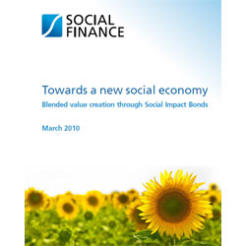Social Finance has urged the Charity Commission to provide clearer guidance on social investment, saying current guidance prevents trustees of charitable trusts and foundations from considering social investment as a way to supplement the social impact generated from their grant-making activities.
Social Finance made the call in its new report Towards a new social economy, published in conjunction with the launch of its new social investment pilot with the Ministry of Justice - Social Impact Bonds, a new six-year initiative to reduce prisoner re-offending rates.
In the report, Social Finance asks the Commission to reconsider its guidance and make it unequivocal with examples of good practice and procedures
Currently, The Charity Commission is consulting the sector on a revision of CC14, its guidance on investments.
CC14 was last updated in 2003 and is widely considered to be out of date and not fit for purpose in the current financial climate – especially the sections on hedge funds and socially responsible investment (SRI).
Social Finance also has a series of asks of the government to help stimulate a social economy, including tax incentives around Social Impact Bonds, greater local control over public sector savings and capitalisation of a Social Investment Wholesale Bank.
Investors into Social Impact Bonds receive a return from government savings made through a good success rate on reducing reoffending.
The report urges greater local control over public sector savings, warning that “if local savings are clawed back to a central department or Treasury, the budgets of those involved at a local level would fall, undermining their ability to repay investors from their savings and weakening their interest in contracting for a Social Impact Bond.”









